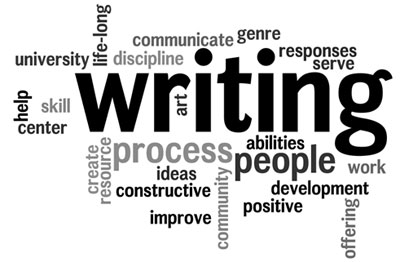|
Did you always imagine great writers have a natural flow and cadence to their words that they were “just born with?”
While it’s true that writing skills come more easily to some than others, it is still a craft and there are thousands of techniques. Last weekend, I and my co-bloggers attended a Georgia Romance Writers workshop that featured instructor Margie Lawson. Enlightening! She presented career-changing advice on analyzing best-selling authors and incorporating the techniques they use to make our own prose pop and connect with readers. Today I’m sharing one of twenty rhetorical devices she taught. It’s widely-used in fiction, even if the writer wasn't consciously aware of the device or know its name. Anaphora is repeating a word or phrase at the beginning of three or more successive phrases or sentences. Here’s the example Margie Lawson used: About a Scandal, Elizabeth Essex – “Lady Claire Jellicoe hadn’t thought to protest. She hadn’t thought Lord Peter Rosing would ever do anything untoward. She hadn’t thought someone she’d just met on a ballroom floor could ever wish her irreparable harm. She simply hadn’t thought.” Isn’t that lovely? Inspired, the three of us examined our own works-in-progress to give it a try. Below is my initial play with anaphora. “She hadn’t known how lonely she was. Solitary swims, days and nights at a time with nothing but her painting – canvas and acrylics – as company. She hadn’t known her childhood friend would return in a grown-up man version that would quicken her heart with hope. She hadn’t known what it felt like to have no control of her emotions with a man. She’d always been the one that set the parameters in every affair. Until Nash.” True, it’s not quite there yet but I’m working on it. (And if you have any suggestions I would LOVE to hear them!) Here are two that Mia McKimmey has written. Yes, she’s done two – and gets the gold star! "Prince Cygan held hope for the day the war dividing his race would end. He held hope for the day they would put an end to the slaughtering of innocent lives. He held hope for the day he could keep his promise to his dying father. He held hope for the day he could accept his appointed position on the throne. None of these would come to pass, not until the day Cy destroyed his twin." And here’s the second one: "It's believed some twins share an unbreakable bond. It's believed some twins can read each other’s mind. It's even believed some twins feel the others pain. But Cy's twin, Cy's twin wants nothing more than to destroy his brother’s life." And here's an example from our third co-blogger, Sherrie Morgan: "She walked to the front door and exited. She walked down the side path of her once beautiful home and exited the garden gate. She walked down the hillside until she heard the water sounds from the shore. Then, Alice ran. She ran on toward the water and its waves called out to her. I’d love for our writer friends to share an anaphora or other rhetorical device they have experimented with in their writing! Until next time – Debbie Herbert, author of Siren's Secret, http://goo.gl/cdgxFT 5/9/2014 11:45:19 am
Thanks for dropping by Pamela! I love learning new writing techniques.
Mia
5/7/2014 04:13:58 am
Thanks for stopping by, Pamela. I loved all the rhetorical devices Margie Lawson spoke of in the workshop. Great ways to make your writing stronger. Best of luck with your class. Comments are closed.
|
